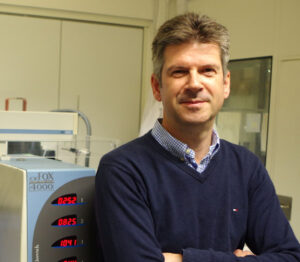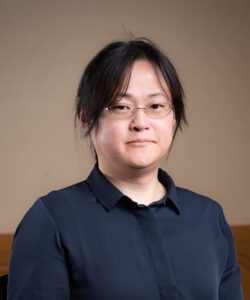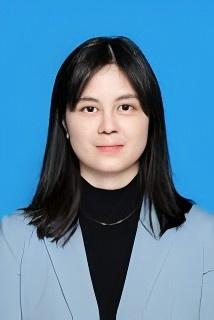
James Covington
Professor, University of Warwick
Biography
James Covington is Professor of Electronic Engineering at the School of Engineering, University of Warwick, and is a leading researcher in chemical sensors and artificial olfaction. He is also the current Director of the BioMedical Engineering Institute (BMEI) at Warwick. In 2010, he founded the BioMedical Sensors Lab to translate gas-analysis technologies into practical systems that cover materials, electronics, and application need. Within medicine, his group develops non-invasive diagnostics and point-of-care monitoring, with previous projects in the analysis of human biowaste, using volatile biomarkers for infection, cancer, and gastrointestinal disease.
In addition, a long-running focus of the lab is low-power gas sensing. By combining micro-fabricated transducers with intelligent signal processing, the team has produced sensors that operate on microwatt-to-milliwatt budgets while maintaining sensitivity, selectivity, and stability. These sensors are now commercially commonplace in the field. Beyond healthcare, Professor Covington’s research covers agriculture and environmental monitoring, including plant-health diagnostics, post-harvest quality assessment, early detection of spoilage, and air-quality.
Complementary to this work, he has also been developing olfactory displays, devices that deliver precisely controlled scents to augment training, accessibility, and immersive media. This work has led to numerous olfactory based exhibitions.
Professor Covington also contributes to international standards in olfaction and electronic noses, helping define test methods and performance metrics. He was the president of ISOCS during 2019 to 2022. He chairs the IEEE-SA working group in this field to develop baseline standards for artificial olfactory devices.

Genki Yoshikawa
Biography
Genki Yoshikawa is the Group Leader of Olfactory Sensors Group at National Institute for Materials Science (NIMS), a Professor at the University of Tsukuba, and the Chief Technical Officer (CTO) of Qception Corporation. He received his B.S. (1999), M.S. (2001), and Ph.D. (2004) in Science from The University of Tokyo. He previously served as an Assistant Professor at Tohoku University (2005–2008), a Visiting Scientist at the University of Basel (2007–2009), an ICYS-MANA Researcher (2009–2011), and an Independent Scientist at NIMS (2011–2016). He has authored over 100 peer-reviewed publications, holds more than 30 domestic and international patents, and has delivered over 200 invited and keynote lectures. He has led more than 10 funding projects, including PRISM and JST-CREST. He has received over 10 awards and has been featured in more than 100 newspapers and TV programs. He is the leading inventor of Membrane-type Surface stress Sensor (MSS), which has been commercialized as an optimized nanomechanical sensor. He led the world’s largest industry–academia–government consortium in the field of olfactory sensing (MSS Alliance/Forum/Partnership), involving more than 50 companies, universities, research institutes, and hospitals. His research is dedicated to developing practical olfactory sensing systems through an integrated approach—advancing hardware (sensing elements, receptor materials, system optimization), software (multivariate analysis, machine learning), and basic science (analytical modeling, fluid dynamics, surface science)—toward world peace.

Liujing Zhuang
Zhejiang University
Biography
Dr. Liujing Zhuang is a New Hundred Talents Program Professor, a faculty member, in Biosensor National Special Laboratory, Key Laboratory for Biomedical Engineering of Education Ministry, Department of Biomedical Engineering, Zhejiang University, China. She received the B.S., Ph.D. degrees from Zhejiang University in Biomedical Engineering in 2011, 2017, respectively. She has been awarded a scholarship from the China Scholarship Council to pursue her study as a joint PhD student at Perelman School of Medicine, Department of Neuroscience, University of Pennsylvania from 2015 to 2016. Her current research focuses on: 1) olfactory brain-machine interface; 2) biomimic olfactory biosensors, 3) neural mechanisms underlying olfactory perception.
Speech Title: Brain-Computer Interface-Based in vivo Bioelectronic Nose
Abstract: Humans perceive the world through five senses, of which olfaction is the oldest evolutionary sense that enables the detection of chemicals in the external environment. Recent progress in bioinspired electronics has boosted the development of artificial sensory systems. Here, we propose a biohybrid olfactory system by integrating living mammals with implantable flexible neural electrodes, to employ the outstanding properties of mammalian olfactory system. The Key Features of this technology include: 1) Real-Time Odor Detection: Integration of living mammals with implantable flexible neural electrodes captures brain signals linked to specific odors with unparalleled accuracy. 2) Advanced Machine Learning Models: Achieves odor classification accuracies of up to 91.2% using state-of-the-art deep learning techniques. 3) Precision Distance Estimation: Incorporates spiking neural networks for odor source localization, delivering average root mean square error values as low as 0.1 meters across diverse conditions. 4) Dynamic Adaptability: Combines biological and AI-driven technologies for robust performance in varied environments.
